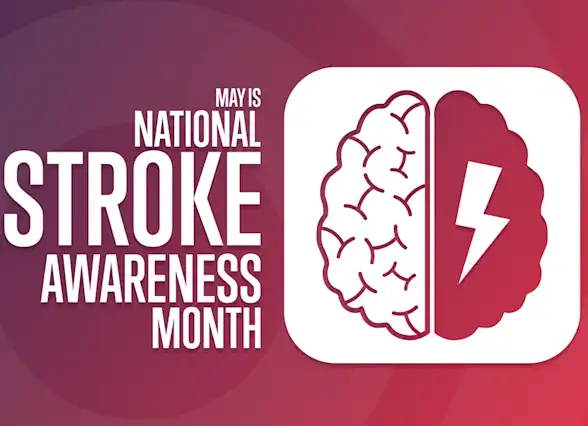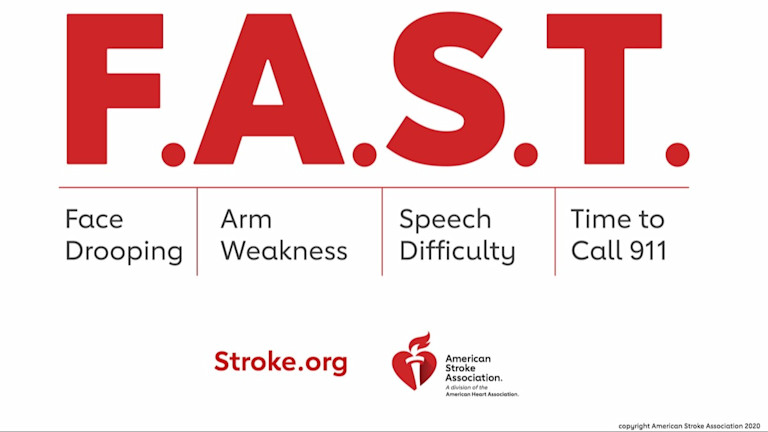Stroke Awareness and Action
Raising awareness and taking action has meaningful impact for our loved ones who suffer stroke and the people who care for them.
Get insurance benefits, legal documents, and medical records in one place

Helpful Highlights
Stroke is the second leading cause of death worldwide. On average, one person dies from a stroke every four minutes.
Stroke is the fifth leading cause of death in the U.S. and a leading cause of severe disability. Every 40 seconds, someone in the U.S. has a stroke (almost 800,000 people per year).
The American Stroke Association intends to educate the general public on the signs and symptoms of stroke, what causes stroke, what happens during a stroke, and what to do when someone suffers a stroke.
Stroke is not predictable. It can happen anywhere, anytime, though 80% of all strokes are preventable.
Remember F.A.S.T.?
The prevailing message of stroke awareness for the last 15 years remains the most important today - Act F.A.S.T.

Since the launch of F.A.S.T. in the U.K. in 2009, and in the U.S. in 2013, "B.E." has been added to the F.A.S.T. pneumonic, turning it into B.E.F.A.S.T.
B - Balance changes
E - Eye or vision changes
Readiness to spot warning signs of a stroke and call 9-1-1 could save a life or make the difference between a strong recovery and long-term disability. That’s why it’s important to learn the stroke warning signs and urge everyone you know to do the same.
The faster the stroke is treated, the more likely the patient is to recover, and a stroke is largely treatable. It’s a matter of getting the right treatment, right away.
Prevent a second stroke
One is more than enough, though unfortunately having a stroke puts your loved one at higher risk for a second one. 1 in 4 ischemic stroke survivors will have another stroke.
However, your loved one has the power to reduce their risk of having another stroke. Here's how:
Working with your loved one's provider to identify the cause of the initial stroke and uncover previously unknown risk factors
Managing blood pressure, cholesterol, and diabetes
Managing atrial fibrillation (A-fib)
Taking all medications as prescribed
Working with your loved one's provider on a formal program for living a healthier lifestyle and making healthy lifestyle choices
Calling 9-1-1 immediately if warning signs of stroke appear again
Most of the time, strokes in older adults are the result of a combination of multiple health and lifestyle factors. In addition to being at high risk for a second stroke, older adults are at risk of other events such as a major cardiac event, within roughly two years of the initial stroke.
The American Stroke Association offers an excellent downloadable and printable resource for preventing a second stroke: What to Do Instead of Having Another Stroke Checklist
Findings
Strokes are most prevalent in older adults. According to the CDC, fewer than 40% of people hospitalized because of a stroke are younger than 65. Overall, the risk of a stroke appears to increase most after the age of 60, with the average age around 74, and most common among people in their 90s.
Sadly, strokes in children, teens, and young adults are increasing at an alarming rate.
Persons with atrial fibrillation (A-fib) are also five times more likely to suffer a stroke than those with a regular heart rhythm.
WOMEN
Women have unique risk factors for stroke, including age. Because women generally live longer than men, more women have strokes over their lifetime.
Other unique risk factors include using certain types of hormone replacement therapy (HRT) and having higher rates of depression.
Stroke is the leading cause of death among African American women and the fourth leading cause of death among Hispanic women.
MEN
Men are at higher risk for stroke because over half of men have high blood pressure, and they are more likely to smoke and consume higher quantities of alcohol.
ETHNICITIES
People of African American and Hispanic descent are at higher risk for stroke than non-Hispanic Whites and Asians.
This is largely due to an increased prevalence of high blood pressure, diabetes, overweight and obesity, smoking, healthcare inequality, and genetic traits like sickle cell disease (1 in 365 African Americans).
RESOURCES
American Stroke Association - About
American Stroke Association - American Stroke Month
Society for Public Health Education (SOPHE)
No content in this app, regardless of date, should ever be used as a substitute for direct medical advice from your doctor or other qualified clinician.
Get more support and guidance on insurance benefits, medical records and legal forms.
Helpful brings together your insurance benefits, legal documents, and medical records in one personalized place — so you always know what you have, and never have to search again.

Technology for Health Tasks. Mental Health for the Tough Stuff.
Helpful connects your medical records, insurance, and caregiving tasks automatically. And when you need more than logistics, a therapist is here to guide you.
In-Network and Covered
For Individuals, Couples and Families
HIPAA Compliant, Data Stays Private






